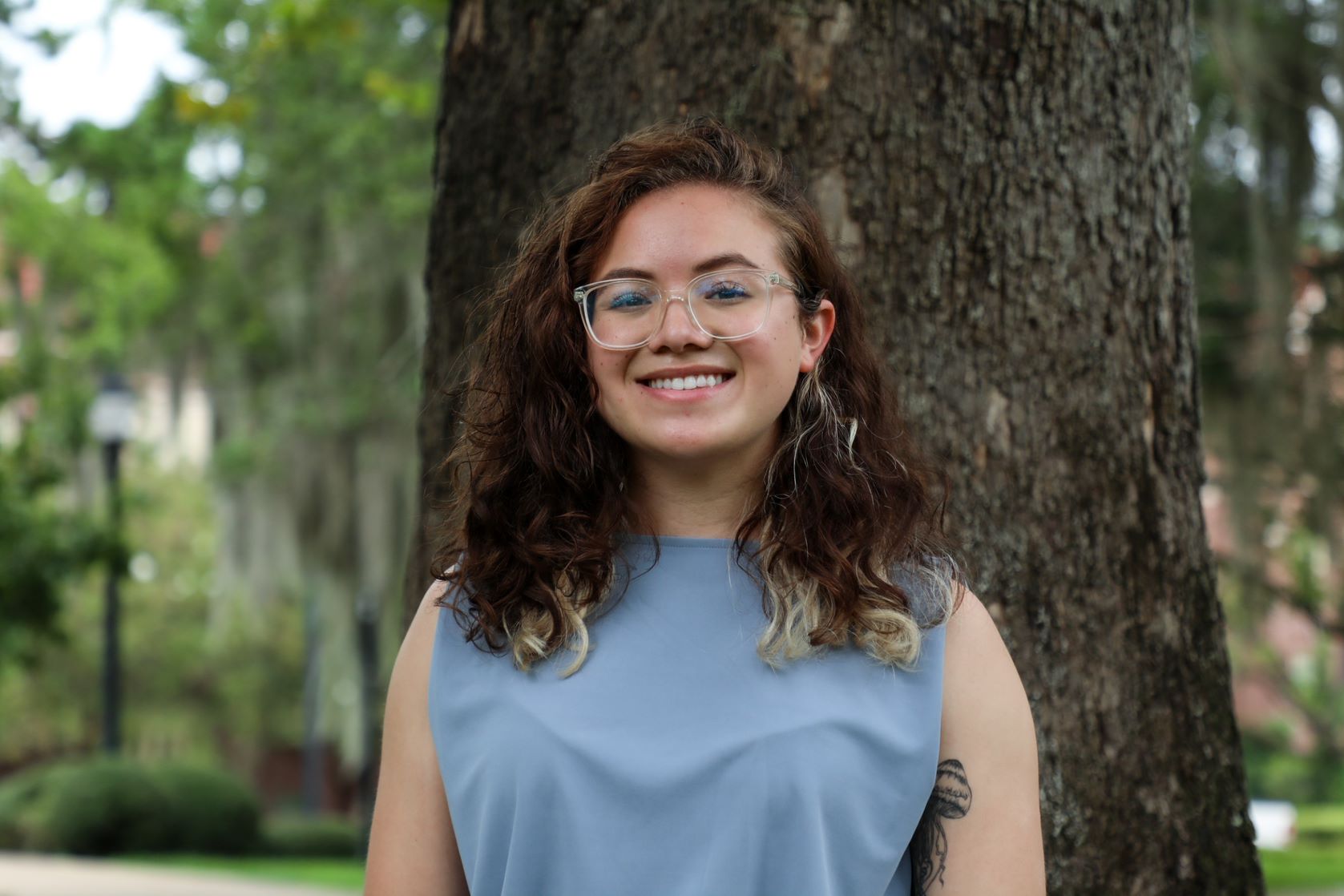Student Spotlight: Andrea Emmanuelli

Andrea Emmanuelli is a junior double-majoring in geology and environmental chemistry through the Department of Earth, Ocean and Atmospheric Science, part of the Florida State University College of Arts and Sciences. In 2021, Emmanuelli served as a research intern at the University of Washington and endeavored on a three-week research cruise to Alaska as part of her program. Her undergraduate research includes notable achievements of presenting at the Spring 2021 and 2022 Women in Math, Science and Engineering Program symposiums. Her projects included “Sources of Dissolved Organic Nitrogen in the Gulf of Mexico” and “Monitoring Total Dissolved Nitrogen Concentrations in the Greater Tampa Bay Region Following the Piney Point Discharge Event.” Emmanuelli has also been a trip leader at the FSU Lakefront Park where she guided wilderness adventure trips.
Where are you from, and what made you choose FSU?
I was born in Puerto Rico but raised in Orlando. I decided to come to FSU because I found the EOAS department and its oceanography work, and it was really appealing to me.
What inspired you to pursue your degree in geology and environmental chemistry? Did you always want to pursue this field?
I knew that I wanted to pursue a STEM major, and I knew I wanted to do something related to environmental science, specifically ocean science. I started in meteorology, then switched to physics. Finally, when I learned more about geology, I decided to switch to that. I learned more and then added environmental chemistry as a second major.
Why oceanographic research?
I grew up as a scuba diver. My dad was really big into scuba diving in Puerto Rico, and he always wanted me to get into it. I used to go diving with him off the coast of Florida throughout middle school and high school, and by the time I was 18, I loved being in the ocean, going out and diving.
You’ve been able to participate in field work already. Tell us about that experience.
I had the opportunity to go to Alaska on a research cruise. It was a three-week cruise in the Gulf of Alaska studying ocean acidification. Through this trip, I found that researching ocean acidification was important for Alaskan communities because it impacts their fisheries, which are culturally and economically significant.
Tell us about your minors. What inspired your minors in mathematics and physics, and what do you hope they contribute to your work in the future?
When I switched majors, this course work I did for math and physics ended up qualifying as minors for me. I'm glad I did the work regardless because in a lot of my other upper-division geology classes, physics comes back. I had learned a lot in my Intermediate Modern Physics class that is also really useful in mineralogy. Having awareness and looking back on what you learned is very helpful. Oceanography is so interdisciplinary that you need to know a little bit of everything.
You are a member of the Society for Women in Math, Science and Engineering Program at FSU. How were you introduced to this group and how has it shaped your study and research?
WIMSE is my biggest influence in college because it is a living-learning community. It taught me a lot about how to find professors, the benefits of doing research at the undergraduate level, and what it looks like to go into a career in academia. It made me aware of a lot of things that students outside the program don't learn until later.
You’ve presented at WIMSE before; tell me about those experiences. What did you gain from them?
The first time that I presented was in Spring 2021. That was online, and the second time was in person a few months ago. I was really nervous the first time, but I'm glad I took the opportunity because through the process of preparing the presentation, I solidified what I wanted to do going into the next year. I thought that presenting in person was going to be harder than presenting on zoom, but it was actually the opposite. Over zoom it felt like all eyes were on me. During the symposium, however, attendees were mostly walking around so I got to explain what was on my poster several times, making it less intimidating each time.
You work for FSU Lakefront Park as a trip leader. Tell us about what made you choose this position.
I decided to apply because I'd never gone backpacking before. Taking people out and sharing my appreciation for the outdoors is something that helps me stay motivated to do research. Our trips also facilitate conversations about climate change, and it’s a really cool opportunity because we also talk about sustainability, leave-no-trace wilderness interactions and more.
Are there any faculty or staff who have helped or inspired you? How so?
Professor of physics and the director of WISME Dr. Susan Blessing has inspired me greatly. She knows that there are always difficulties as a woman in STEM, so she’s a great resource and person to talk to, especially because I know she’s a great scientist. There’s also associate professor of oceanography and environmental science Angela Knapp. Every time you talk to Dr. Knapp, you can tell that she’s a huge nerd about this. It's honestly one of the biggest reasons I wanted to keep studying biogeochemistry; her passion makes me feel passionate myself.
When are you graduating? Following your graduation, what are your plans?
I have two years left, and I'm pretty sure I'm going to grad school for chemical oceanography. I want to do an honors thesis before going into grad school because it’s a good way to experience grad school before beginning graduate studies.
